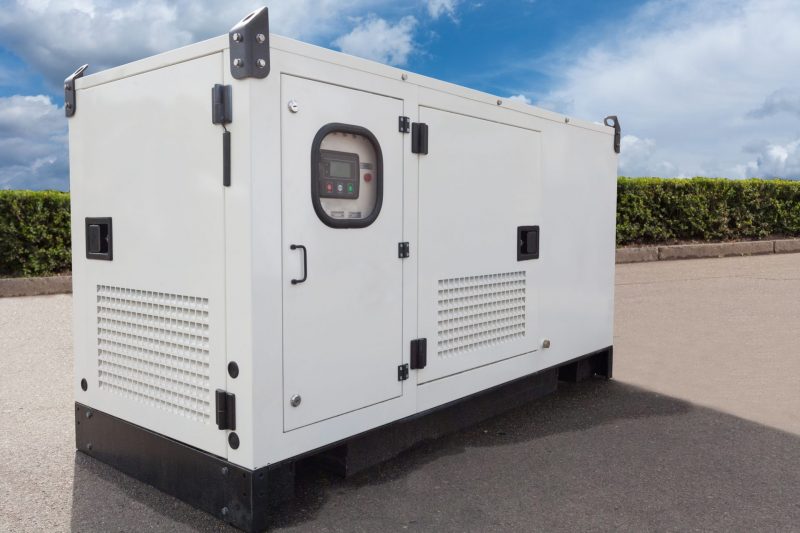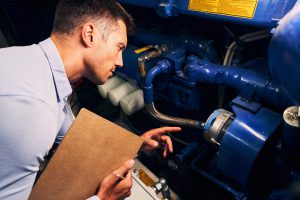A diesel generator consists of a diesel motor and an inverter that transforms mechanical energy into electrical energy in alternating current (AC). A diesel generator is commonly fuel-driven. However, some are also powered by fossil energy or other petroleum products.
Powerful, dependable, and long-lasting, diesel generators provide backup emergency power for businesses and homes. Even so, thorough care of your diesel generator is required to guarantee that it stays in good working order for many years.
Here are five suggestions for keeping your diesel generator in good working order:
Table of Contents
1) Conduct Routine Checkups
Accidents can occur at any time when operating a diesel generator. The simplest approach to avoid this unfortunate predicament when running a generator is to do basic maintenance on a regular schedule.
Routine checkups are necessary since the generator shakes when running, resulting in some pieces or nuts breaking off. Therefore, an accident or a generator malfunction may occur. With this in mind, you should inspect the various systems, such as the fuel, muffler, inverter, and power components, to ensure that everything is in top condition.
The filter should be replaced regularly. However, consult the manufacturer about the proper procedure for replacing the oil filter and the appropriate disposal method to avoid environmental harm. For diesel generators to work well, it pays to utilize top-quality oils, greases, and coolants.
2) Clean Your Generator Regularly
Your diesel generator’s stator and rotor are crucial components that generate power concurrently. However, exceeding the recommended operating limits causes these components to accumulate particles, dirt, soot, and other impurities.
When this occurs, your generator loses power and becomes less and less effective, increasing the likelihood of the rotor and stator breaking down altogether.
You should pay special attention to these routine maintenance procedures, especially if you work in a dusty workplace. This ensures your stator and rotor are in peak working condition.
3) Monitor The Oil Inside Your Generator
On average, generator oil has a five-year shelf life. However, this doesn’t imply that you should check the oil in your diesel generator every five years. The oil can get stale if the generator has been left sitting for a long time. Since stale oil does not flow easily, it can easily clog the engine.
Regular oil monitoring is the best method to avoid operating your generator with stale oil, greatly reducing startup troubles. You should also check if your diesel generator has enough oil. Running a generator with little or no oil or gas can cause significant wear and tear on critical engine parts.
4) Run Your Generator Every Few Months
Many families and businesses rely on diesel generators as a backup power supply in an outage. As a result, diesel generators might sit idle for months or even years.
It’s advisable to run your generator every few months to keep the electric starting battery charged. This will also guarantee that your generator is in excellent working order in case of a power outage.
5) Ensure The Batteries Are Performing Optimally
An undercharged or unstable battery is a recipe for a mechanical malfunction. The batteries should be completely charged and kept in excellent condition to avoid deterioration. This may be accomplished by regularly cleaning and monitoring the battery’s relative density and electrolyte quantity. Here are some crucial points to remember:
Battery Testing
Testing a battery’s capacity to create or supply enough power to start a diesel generator isn’t the same as testing its voltage. The resistance to the flow of current produced by the batteries increases with age.
The only valid test for estimating the voltage output is when the batteries are loaded mechanically or electrically. This test is executed automatically on specific diesel generators when switched on, whereas it’s done manually on other diesel generators using a battery load tester.
Cleaning Your Battery
Keep your batteries clean at all times. You can use a moist material to wipe them, and if you find indications of rust on the terminals, detach the cords and seek expert help. If you want to do your own cleaning, avoid getting any solutions or other chemicals inside the battery cells.
Monitor Relative Density
If your diesel generator uses a flooded lead-acid battery, a hydrometer (density meter) should measure each battery cell’s relative density. The relative density of a fully loaded and well-maintained battery is 1.265. If the reading is lower, be sure to charge.
Final Thoughts
Diesel generators are considered the best choice for providing emergency power in an outage. They’re less costly to operate compared to generators powered by liquid fuels or natural gas. However, diesel generators require routine checkups and regular maintenance to ensure they’re in excellent working condition whenever you need them.







